Massively multiplayer online role-playing games (MMORPGs, mercifully) get a bad rap for being life-sucking parallel universes. However, games like World of Warcraft are a microcosm of many real-life experiences. No, really.
Picture: Elliott Cable, Russell Sprague, Poe Tatum, Roxanne Ready, Sai Pennell, Rolo Tomassi
For those who are unaware of how World of Warcraft works, here’s the gist: you start out mostly broke, you have no skills and very little sense of where you are in a gigantic world. Most living things are out to kill you. Kind of like real life. Between level grinding, learning virtual professions, exploring new territory, learning how your particular skill set works, and selling and trading with other players, World of Warcraft (and many other MMOs) can quite unexpectedly teach us things about real life. Here’s a few things I picked up in the years I played.
The Default Way of Doing Something is Rarely the Most Efficient
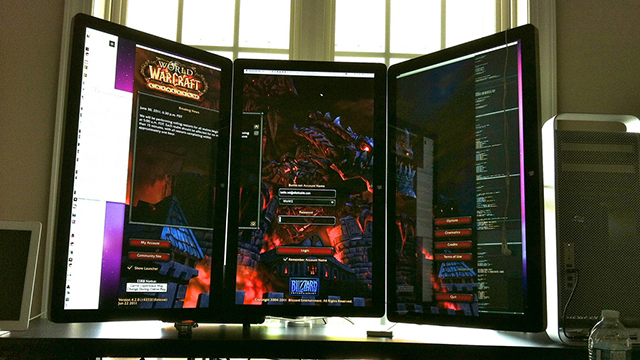
The first time I fired up World of Warcraft, I was overwhelmed. There was a huge array of buttons, docks and keyboard shortcuts that I had to learn, and I didn’t know where to start. By the time I hit level 60, I’d already shifted the default order of my abilities, remapped my keyboard shortcuts and, eventually, acquired a gaming peripheral to give me even more options. Yes, I became that guy.
The interface in World of Warcraft is blissfully customisable, which is good because the nature of the game is complex. At any given moment, you have around a dozen or more abilities you may need to invoke at a half second’s notice. When I began playing, I could activate around four, maybe five abilities without moving a finger. By the time I was done customising my peripherals, I could reach up to 20 spells without moving more than one finger a single key away from its original position. Not only was the default button layout insufficient in the game, it was practically begging to be altered.
That habit of customising layouts ended up spilling over into the rest of my work. I’d always been a fan of keyboard shortcuts, and I even used Autohotkey to make custom commands. But I wanted more programmable buttons after getting the G13. I followed it up with G110 and G600. Now I use more than a dozen personalised shortcuts and commands that don’t interfere with the shortcuts I already used. I didn’t realise it at first, but I had transferred that skill directly over to real life. Now, if I found myself repeatedly reaching for a task, I mapped it to one of my programmable buttons. Not just keyboard shortcuts, but entire sequences of actions. I began making macros for everyday work and mapping them to buttons I didn’t have on normal devices, and I did so much more freely, precisely because I had those extra buttons.
Regular Lifehacker readers may know this on some level or another already, but this idea underlies much of what we do. Interfaces are designed for the masses, not you specifically. The instruction manual shows you the safest way to do something, but there’s typically a better way. Conventional wisdom gets you in the door, but exceptional wisdom moves you up the ladder.
Learn the Local Customs to Advance Quickly
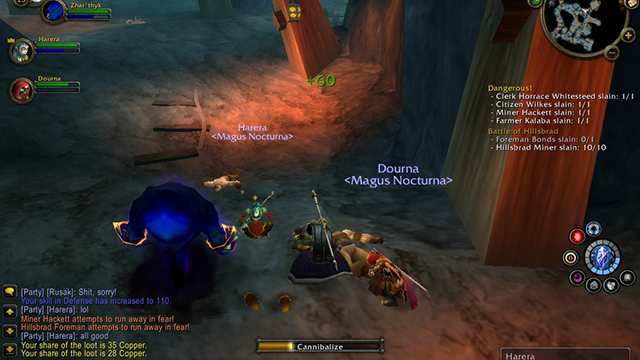
When you begin a job with a new company, start going to university or meet your new love interest’s family, you’re not just facing new challenges, you’re integrating into a new culture. Everyone has been in the group longer than you, and they have their own language, traditions and methods. As the newcomer, your best bet for getting along is to learn their ways instead of sticking to your own.
The first time I fired up World of Warcraft, I encountered strange and bizarre languages that I had never heard before. In one case, another player gave me the following instruction: “table.” It was a complete sentence. Trying to force everyone around me to “speak plainly” would go nowhere, because everyone was already set in their ways and no one wants to slow down for the new guy.
While I eventually switched to other MMOs, the lesson carried over not just to new games but to every new opportunity. When you first interact with a new group of people, you’re going to be the odd man out. That’s OK. You won’t always be the new person. However, you’ll have a much easier time if you exercise humility and learn how to be a good guest.
Sometimes Starting Over is Easier Than You Think
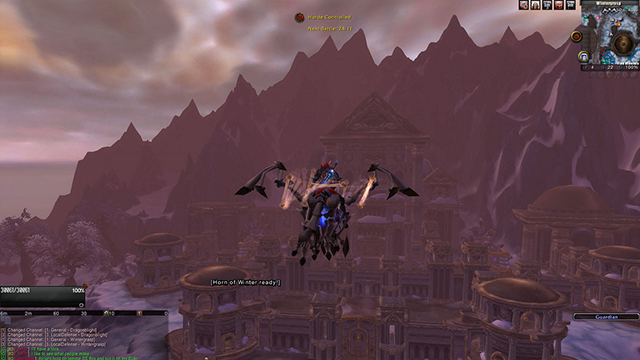
Many of us have a deep-seated fear of starting over. Whether it’s lower their relationship standards to avoid being alone.
The risk of starting over in an MMO is much lower. All it costs is time, although that can be a hefty price itself. Yet, I still didn’t want to. By the time I reached level cap, I could buy just about anything, I wasn’t worried about getting one-shotted by people 40 levels above me. And, to top it all off, I could fly. Why would I go back to hoofing it across Kalimdor on foot? I was comfortable in my experience and status, even though I had become bored of this character and wanted something new.
There’s one very big advantage to starting over though: you now have more experience. I spent considerably less time building a new character, because I knew the ropes. It wasn’t as scary to start over as I thought, because I knew how to get by now. Similarly, starting anew in real life may mean gaining new skills, but you know already how to impress employers. Or, maybe you have to get back into the dating pool, but now you know the pitfalls that caused you trouble in your previous relationships. Starting over on a new toon means you’re gank fodder, but at least now you know not to blow all your coin on item upgrades you don’t need only to find out you’re broke when it comes time to buy your first land mount. (True embarrassing story.)
Even Things You Enjoy Can Be a Grind
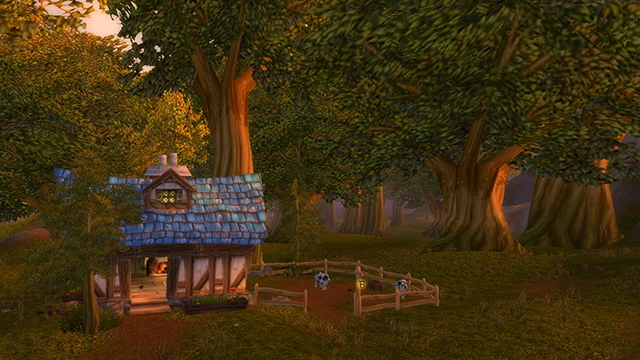
I used to work as a video editor and hated it. I had been trained to do it, and I even enjoyed working on my own projects. But I loathed every minute when it came time to do it as a job. Coincidentally, I started getting into MMOs right around the time I decided to switch careers and move into writing.
I learned a very important lesson in the real and virtual world simultaneously: just because something is fun doesn’t mean it’s not going to involve a lot of constant, monotonous grinding. Some days, you might be taking down Erudax, lieutenant of Deathwing, other days you’re collecting 17 Red Feathers of Fluflenub for the Legion of Boring Dwarves. And the latter will probably happen a lot more often than the former.
When I was doing work I couldn’t stand, I errantly believed that the tedium of a boring job was what was getting to me. I thought that if I got a job I found more fulfilling, suddenly the grind would magically be fun. It’s not. It doesn’t feel as soul-crushing, because the high points are enjoyable. But there’s almost always five days of grunt work for every one evening of having a blast. The point isn’t to find a job that eliminates the grind. The point is to find a job that makes the grind worth it.
Selling Things Isn’t Really That Complicated
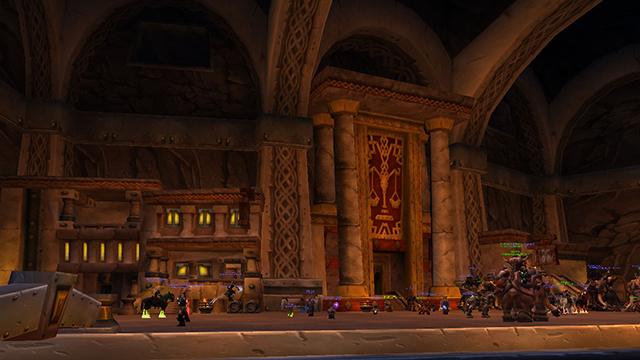
Selling products used to be mystifying to me. How do you buy enough product to sell and still make a profit? What should your margins be like? How do you even figure out where to put a price? The whole system seemed over my head. Then I started a profession as a miner and engineer, selling my spare materials on the auction house. Suddenly, it all made sense.
Price is a spectrum. On one end is your cost: the sum total of the time and materials it took to make something. On the other end is the lowest price someone else is charging for a comparable product. What you charge goes somewhere in between, and hopefully as close to the higher end as possible. There’s no magic to it. I would put items up for sale that were slightly cheaper than someone else’s item and boom. Sold. As long as someone needed it, of course.
Real life isn’t that different. With the advent of the internet, there’s no shortage of ways to build a side business selling stuff you make. Big-name retail stores and Amazon make it seem like selling physical goods is a business best left to the pros, and you’ll face stiff competition if you ever make it up to that league. But everyone has to sell something. Whether it’s our skills, our products or our time, we all have to sell something. The formula for figuring out how to get paid doing so is easier than it looks.
Learn When to Let Go
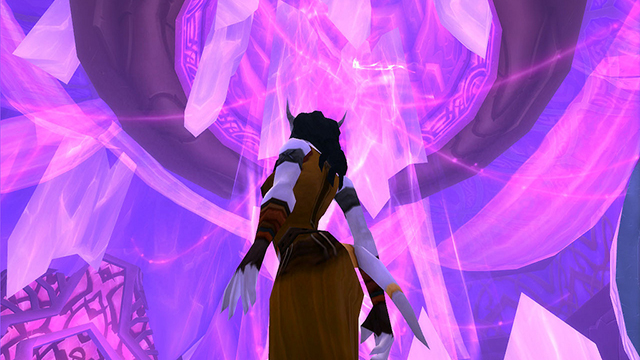
Eventually, I stopped playing World of Warcraft. A few times, in fact. That’s not to say I would never return, but I had to stop eventually. There was nothing wrong with it. I enjoyed the grind, and I liked exploring the world. There was just one problem. That dang subscription.
I justified paying for World of Warcraft for a few months longer than I should have. There was a real dollar figure attached to that mistake, and it’s money I can’t get back, but it felt like it was worth it at the time. I mean, I had spent months with my mage. How could I turn my back on him? This wasn’t just a matter of being addicted to a game. I wrote stories about my characters. Yes, they were bad, and it felt cliché to write about WoW characters. But you know what? Fiction writing doesn’t come easy to me, and I have yet to find something that triggered my imagination like that.
At the end of the day, I wasn’t using it. I was paying $15 a month to log in once every couple of weeks. I had good reasons to hang on to that subscription: It was fun. It encouraged me to be creative. It was relaxing. I got to talk to people with similar interests. Nonetheless, it still had to go.
Life, unfortunately, is filled with those moments, and many of them hurt a lot worse than cancelling a subscription to a video game. Growing and gaining experiences doesn’t happen in stasis, and there will come a time when you even have to leave good things behind. Whether it’s leaving home for the first time, stepping away from a job you enjoy to pursue new opportunities, or accepting that Joss Whedon wouldn’t get to run the Avengers if he was busy on the eighth season of Firefly.
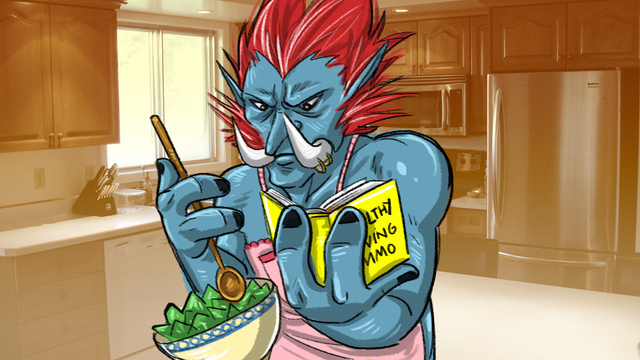
Comments